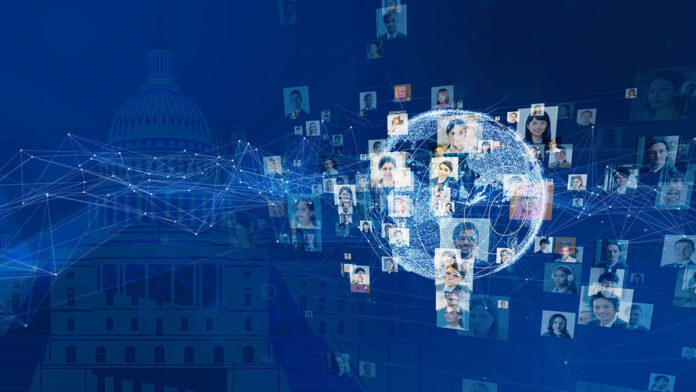In today’s rapidly evolving landscape, the intersection of politics and technology has become increasingly prominent, reshaping the way we engage with poli-tical discourse, campaign for office, and govern societies. Let’s delve into the intricate relationship between politics and technology, exploring its impact, challenges, and ethical considerations.
Impact of Technology on Politics
Technology has revolutionized the political landscape, democratizing access to information and fostering greater citizen participation in poli-tical processes. With the proliferation of digital platforms, individuals can now engage with poli-tical content, express their views, and mobilize for social change like never before.
Role of Social Media in Political Discourse
Social media platforms have emerged as powerful tools for poli-tical communication, enabling politicians to directly engage with constituents and mobilize support for their agendas. However, the unfiltered nature of social media also poses challenges, as it can amplify divisive rhetoric and facilitate the spread of misinformation.
Digital Campaigning Strategies
In the digital age, political campaigns leverage sophisticated strategies to target voters and shape public opinion. From targeted advertising to data analytics, technology allows campaigns to tailor their messaging to specific demographics, maximizing their reach and impact.
Transparency and Accountability in the Digital Age

While technology has enhanced transparency in government through initiatives such as open data and public records accessibility, it has also raised concerns about data privacy and government surveillance. Balancing the benefits of transparency with the need to protect individual privacy remains a pressing challenge.
Cybersecurity Challenges in Politics
The increasing reliance on digital infrastructure in poli-tical processes has exposed poli-tical entities to cybersecurity threats, ranging from hacking attempts to disinformation campaigns aimed at undermining election integrity. Safeguarding electoral systems and voter data against cyberattacks is paramount to preserving democratic principles.
Cybersecurity challenges in politics present a significant concern in today’s digital age. With the increasing reliance on technology for poli-tical campaigns, communication, and information dissemination, the risk of cyber threats has grown exponentially.
Political entities, including government agencies, poli-tical parties, and individual politicians, face various cybersecurity challenges, such as hacking attempts, data breaches, misinformation campaigns, and social engineering attacks. These threats not only jeopardize the integrity of poli-tical processes but also undermine public trust in democratic institutions. Moreover, the interconnected nature of cyberspace means that cybersecurity breaches in poli-tics can have far-reaching consequences, affecting national security and geopolitical stability.
Addressing cybersecurity challenges in poli-tics requires a multifaceted approach, involving robust cybersecurity measures, continuous monitoring and threat detection, cybersecurity education and awareness programs, and collaboration between government agencies, private sector organizations, and cybersecurity experts. By proactively addressing these challenges, poli-tical entities can mitigate risks and safeguard the integrity of democratic processes in the digital age.
Ethical Considerations in Political Technology

As technology continues to shape poli-tical discourse and decision-making, ethical considerations loom large. Issues such as privacy infringement, algorithmic bias, and the manipulation of public opinion raise questions about the ethical use of poli-tical technology and the need for robust regulatory frameworks.
Conclusion
In conclusion, the intertwining of poli-tics and technology presents both opportunities and challenges for modern societies. While technology has empowered individuals to engage more actively in poli-tical processes, it also raises concerns about privacy, security, and the integrity of democratic institutions. Navigating these complexities requires a concerted effort to harness the benefits of technology while safeguarding fundamental democratic values.
FAQs
- How has technology influenced modern poli-tics?
Technology has democratized access to information, facilitated greater citizen participation, and transformed poli-tical communication and campaigning.
- What role does social media play in poli-tical discourse?
Social media platforms serve as powerful tools for poli-tical communication, enabling politi-cians to engage directly with constituents and mobilize support for their agendas.
- What are some digital campaigning strategies used by politi-cians?
Politicians employ strategies such as targeted advertising and data analytics to tailor their messaging to specific demographics and maximize their reach and impact.
- What cybersecurity challenges do poli-tical entities face?
Political entities face cybersecurity threats such as hacking attempts, disinformation campaigns, and the manipulation of voter data, posing risks to election integrity and democratic processes.
- What ethical considerations arise in poli-tical technology?
Ethical considerations in poli-tical technology include privacy infringement, algorithmic bias, and the manipulation of public opinion, highlighting the need for robust regulatory frameworks to ensure accountability and transparency.


